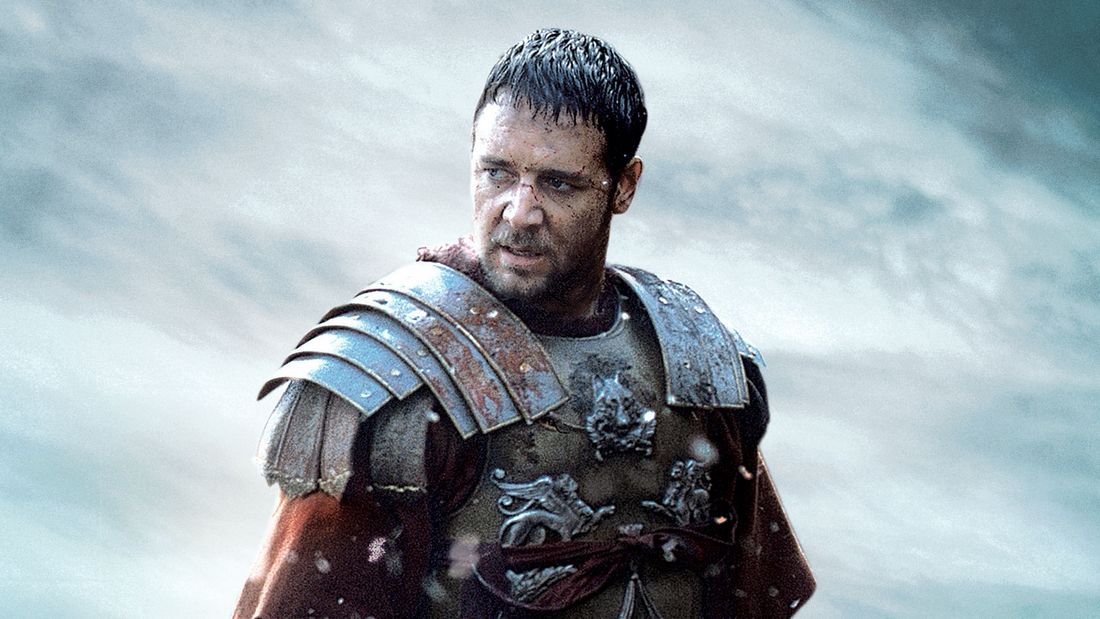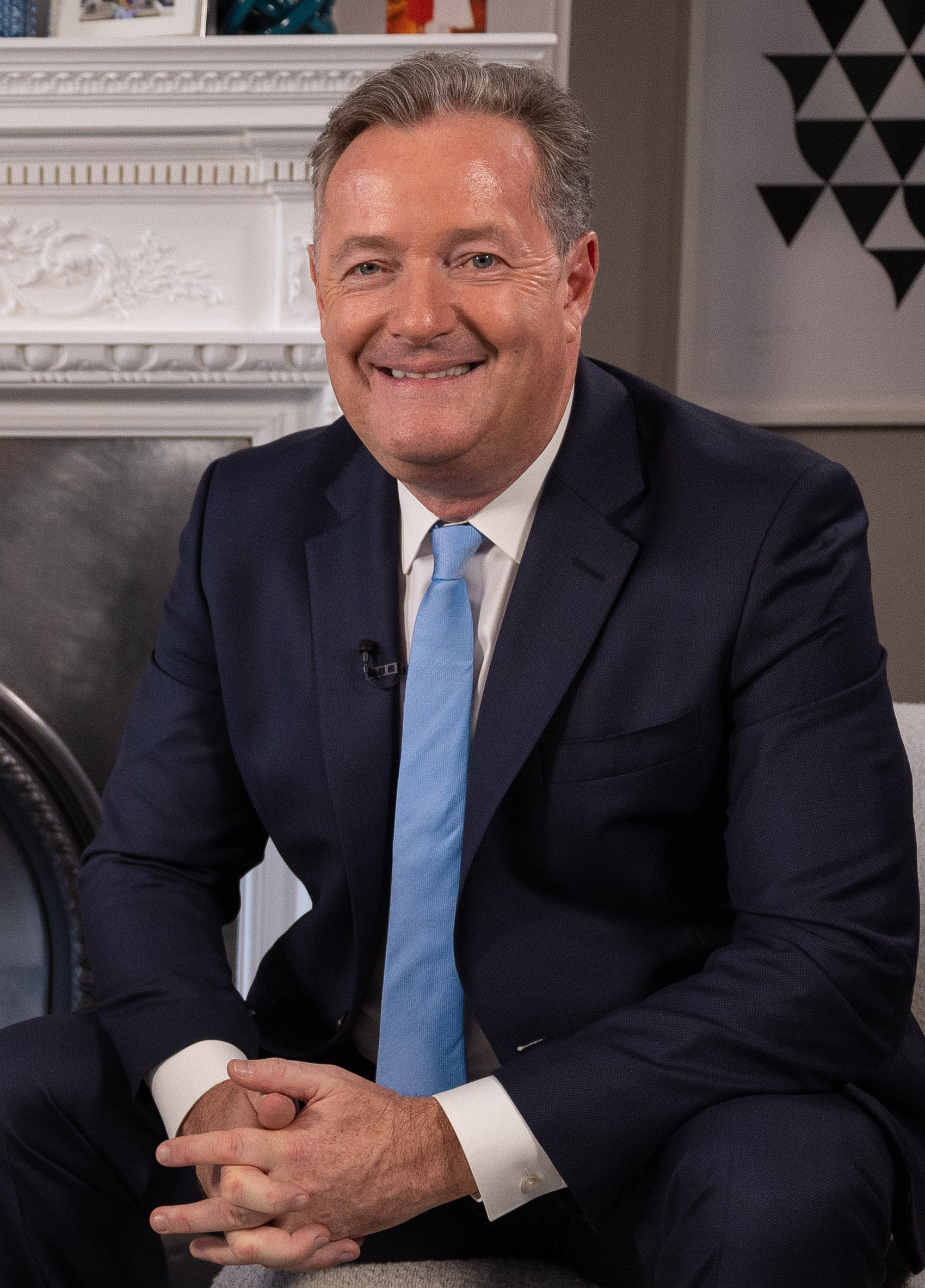
A live broadcast of “Piers Morgan Uncensored” on a recent Monday became the arena for a particularly charged exchange, culminating in a dramatic walkout by Cornel West, the esteemed professor and political activist. The catalyst for this heated discussion was the assassination of Charlie Kirk, founder of Turning Point USA, an event that has sharply reignited profound concerns about the escalating temperature of political extremism and the role of public rhetoric in contemporary American discourse.
The segment, intended to explore the complex interplay between inflammatory language and real-world violence, swiftly devolved into a shouting match. Host Piers Morgan convened a panel, including West and “Whatever” podcast co-host Andrew Wilson, aiming to dissect the profound implications of Kirk’s untimely death. This national tragedy, which occurred during Kirk’s “American Comeback Tour” at Utah Valley University on September 10, served as a stark backdrop to a debate that illuminated deep fissures within the nation’s public dialogue.
Our examination will meticulously chronicle the key moments of this intense broadcast, dissecting the arguments presented, the accusations hurled, and the profound ideological differences that came to the fore. From Morgan’s pointed initial challenge to West’s nuanced yet ultimately confrontational responses, we will trace the escalating tension that characterized an exchange now emblematic of the challenges confronting open political debate.
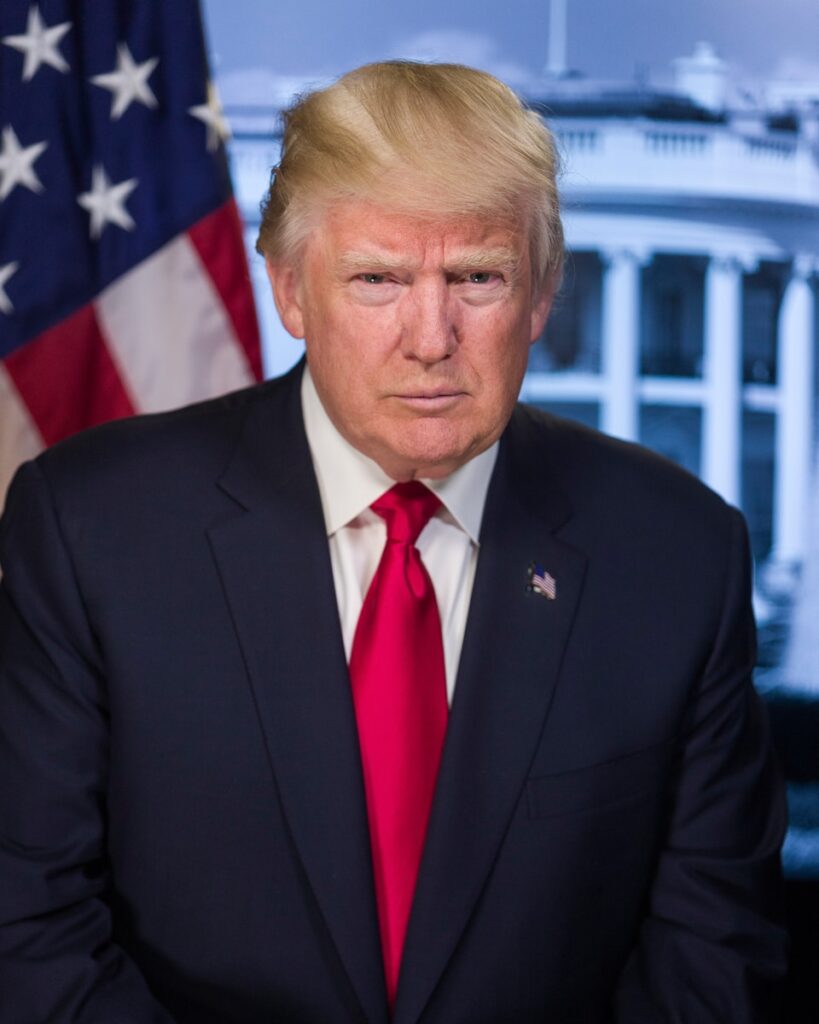
1. **The Initial Premise: Piers Morgan’s Accusation of the ‘Woke Left’s’ Rhetoric**: From the outset of the “Piers Morgan Uncensored” segment, the host laid down a challenging premise, directly linking the assassination of Charlie Kirk to what he termed the “constant rhetoric” emanating from the “woke left.” Morgan articulated his firm belief that such language, particularly when directed at political opponents, contributed significantly to the climate of hostility that could foster violence. He left little ambiguity regarding where he believed a substantial portion of the blame resided.
Morgan’s argument centered on the “relentless use of the phrases ‘Hitler,’ ‘Nazis,’ ‘fascists’ about Trump and about Trump’s supporters” ever since Donald Trump assumed power in 2016. He contended that this consistent deployment of highly charged historical comparisons had seeped into public consciousness, potentially influencing individuals to believe that extreme actions, including violence, might be justifiable against those labeled as such. The severity of these labels, Morgan implied, strips opponents of their humanity and legitimizes aggression.
He explicitly stated, “There is little doubt to me that the constant rhetoric on the left, the woke left — let me be specific to where I think a lot of the blame lies — ever since Donald Trump came into power in 2016, has been this relentless use of the phrases ‘Hitler,’ ‘Nazis,’ ‘fascists’ about Trump and about Trump’s supporters.” This statement framed the core of the debate, establishing a direct line of inquiry into the responsibility of political discourse.
The host further elaborated that this pervasive “mindset,” cultivated through such intense demonization, could convince younger individuals that violent responses might be warranted to “stop alleged fascists.” The implication was clear: words, particularly those of a highly inflammatory nature, carry weight and can have tangible, destructive consequences, making the discussion about their appropriate use critically urgent in the wake of Kirk’s death.
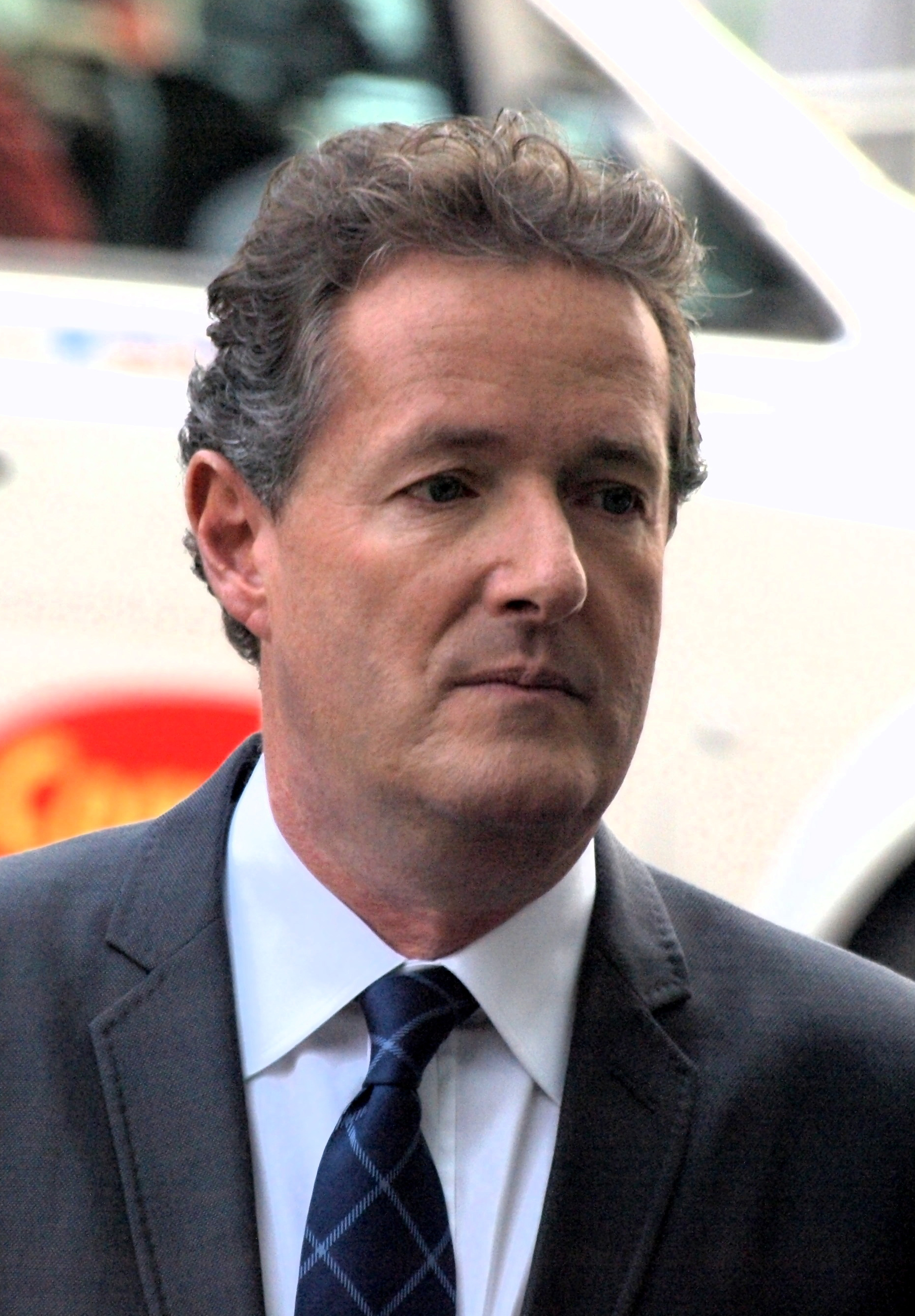
2. **Morgan’s Direct Challenge to West: The ‘Nazi’ Label**: Building upon his opening assertion, Piers Morgan directly turned to Cornel West, pressing him to acknowledge the role of inflammatory language in the current political climate. Morgan’s line of questioning was precise, seeking West’s agreement that the repeated use of derogatory terms, specifically the word “Nazi,” was contributing to a dangerous environment and was, in his view, a “woeful misuse” of such historically significant terminology.
The direct nature of the query placed West in a challenging position, requiring him to either align with Morgan’s assessment of the “woke left’s” rhetoric or articulate an alternative perspective. Morgan specifically asked, “Do you agree that this language, this relentless, in my view, woeful misuse, particularly of the word ‘Nazi,’ towards Trump and his supporters, is part of the problem?” This question was designed to elicit a definitive stance on the issue of rhetorical responsibility.
Morgan’s emphasis on the term “Nazi” highlighted its historical weight and the profound implications of its application in contemporary political discourse. He posited that such language dehumanizes political opponents and, in the wake of Kirk’s assassination, could be seen as having tragically tangible consequences. The host clearly sought an admission from West regarding the potential dangers inherent in such aggressive labeling.
This pointed interrogation underscored Morgan’s conviction that certain forms of political speech, particularly those employing extreme comparisons, bear a degree of culpability in fostering environments where political violence might emerge. His direct appeal to West was a critical juncture, setting the stage for West’s subsequent elaborations and ultimately, the escalating tensions that would define the rest of the debate.
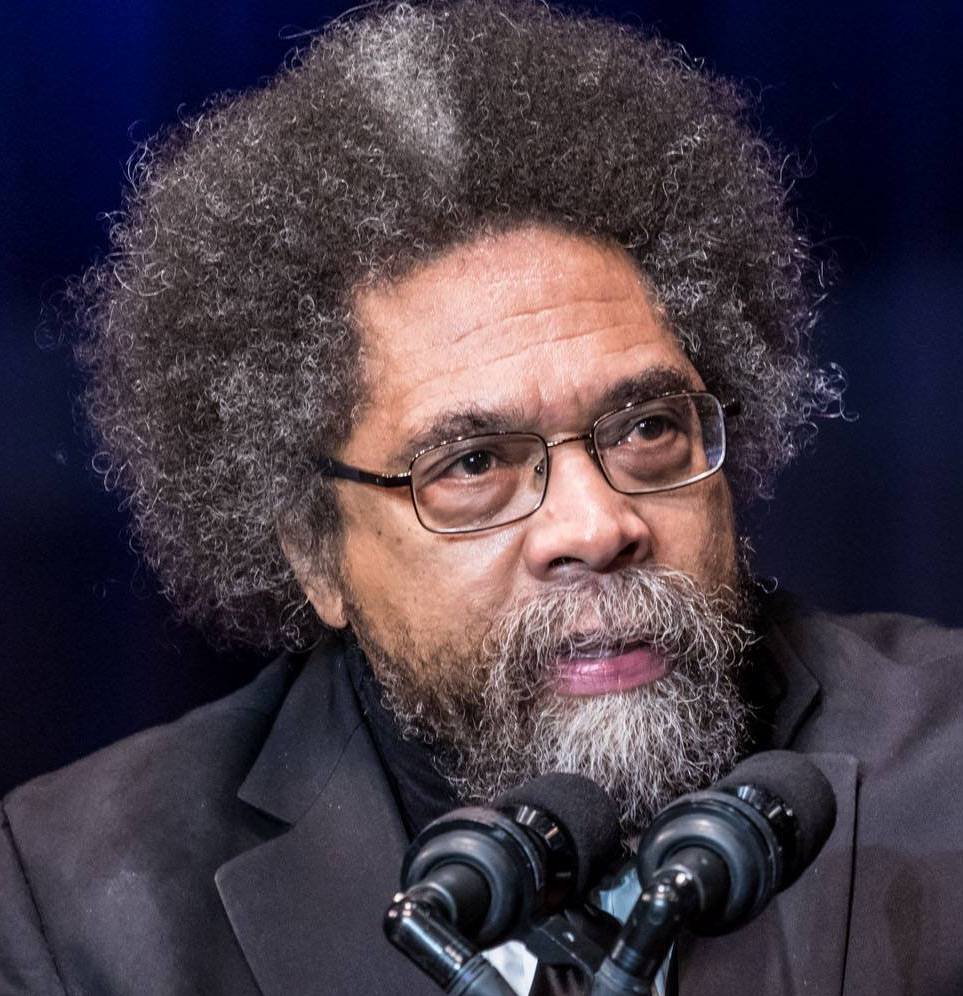
3. **West’s Initial Response: ‘Organized Greed and Weaponized Hatred’**: In response to Piers Morgan’s direct challenge, Cornel West initially broadened the scope of the discussion, shifting the focus from specific rhetorical blame to deeper, systemic societal issues. Rather than directly engaging with Morgan’s premise about the “woke left’s” language, West introduced a more comprehensive critique of contemporary society, suggesting that the problem extended far beyond partisan rhetoric.
West articulated a complex interplay of forces that he believed eroded the foundations of civil society. He stated, “Well, I think part of the deeper problem though, brother Pierce, is that the organized greed and weaponized hatred and routinized indifference toward the vulnerable has come together in such a way that it has eroded the sources of character formation, so that integrity, honesty, decency and self-critical sensibilities in of individuals and groups is more and more disappearing.” This response reframed the issue as one of moral and social decay.
By invoking “organized greed” and “weaponized hatred,” West pointed to systemic failures he saw contributing to the overall climate of animosity and violence. He suggested that these broader societal ills had created an environment where essential qualities like “integrity, honesty, decency and self-critical sensibilities” were increasingly absent. This perspective offered a more philosophical and less immediate explanation for the political polarization and its potential violent manifestations.
West further argued that hatred itself is “promiscuous,” implying that it is not exclusive to any single political group or ideology but can manifest across the spectrum. He asserted that while hatred is ubiquitous, the current societal conditions, shaped by the factors he outlined, have rendered such qualities particularly “lethal.” This general statement, however, did not directly address Morgan’s specific concern about the left’s rhetoric, setting up a subsequent clash.
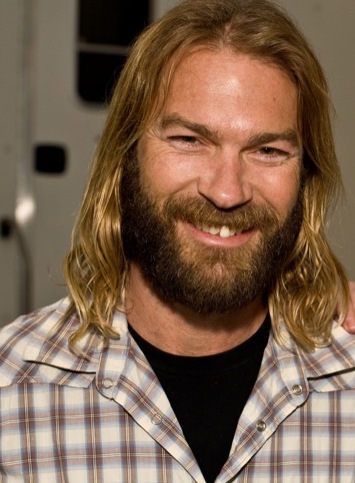
4. **Andrew Wilson’s Challenge: West’s ‘Neo-Fascist’ Label for Trump**: The debate took a sharp turn when fellow panelist Andrew Wilson, co-host of the “Whatever” podcast, interjected to challenge Cornel West’s more generalized response. Wilson’s intervention brought the discussion back to the specific accusations of inflammatory language, directly confronting West with his own past rhetoric regarding the Trump administration. This moment served as a critical pivot, transforming a broad discussion into a more personal and pointed confrontation.
Wilson’s challenge was direct and specific, cutting through West’s broader societal analysis. He noted that West had “repeatedly referred to the Trump administration as a ‘neo-fascist’ government.” This accusation immediately highlighted a perceived inconsistency between West’s current expansive critique of hatred and his own specific application of a highly charged political label. The question implicitly asked West to reconcile his general statement about hatred with his particular historical classifications.
According to the context, Wilson, described as a commentator who runs “verbal combat” courses on his “Debate University” website, was well-versed in confrontational dialogue. His ability to recall and cite West’s previous statements underscored the focus on credibility and the direct attribution of rhetoric. This factual recollection served to corner West, making it difficult for him to maintain a purely abstract discussion about societal ills.
Wilson’s accusation aimed to demonstrate that West himself had employed the very kind of extreme political labeling that Piers Morgan had initially critiqued as contributing to a toxic environment. This direct challenge paved the way for West’s subsequent admission, setting the stage for the dramatic escalation that would define the remainder of the segment and intensify the debate about rhetorical responsibility.
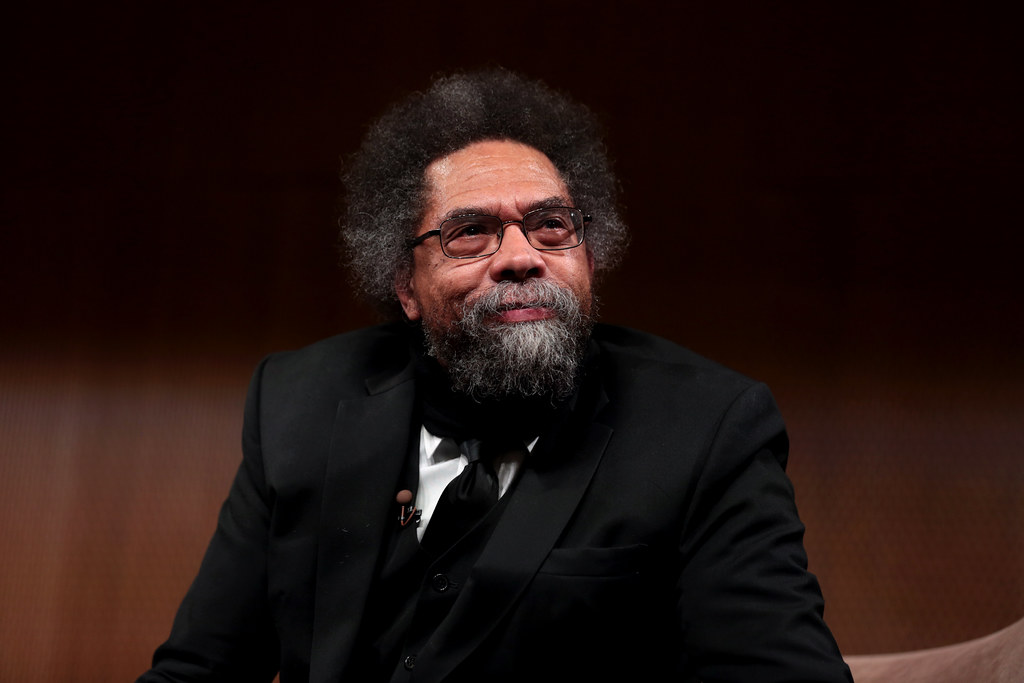
5. **West’s Confirmation and Justification: ‘Yes indeed, you’re absolutely right.’**: The direct challenge from Andrew Wilson regarding his past characterization of the Trump administration elicited a strikingly candid admission from Cornel West. When Wilson pressed him, specifically accusing him of referring to Trump’s administration as a “neo-fascist movement,” West did not deny the claim. Instead, he confirmed it unequivocally, stating, “Yes indeed, you’re absolutely right.” This moment was a critical turning point in the debate, as it brought West’s own rhetoric under intense scrutiny.
West’s acknowledgment immediately deepened the complexity of the discussion, placing him directly within the framework of Piers Morgan’s initial criticism about the “woke left’s” use of extreme labels. Having previously offered a broader societal critique, West was now forced to confront his personal role in employing such potent political terminology. This admission served to validate Wilson’s challenge and provided a direct example of the rhetoric Morgan had singled out.
Later in the segment, West would insist, “There are such a thing as neo-fascists!” attempting to justify his use of the term not merely as an insult, but as a political classification he genuinely believed to be accurate. This justification signaled that for West, labeling the Trump administration as “neo-fascist” was a considered intellectual position, rather than an offhand remark, underscoring the ideological divide at the heart of the debate.
Furthermore, before his eventual walkout, West sought to connect his “neo-fascist” label to Kirk’s own views, asking, “When Charlie himself says that he is against civil rights act, does that make him a proponent of Jim Crow?” This attempt to justify the label by citing Kirk’s positions suggested that West viewed such policy disagreements as foundational to his classification, further illustrating his unwavering conviction despite the heated nature of the debate.
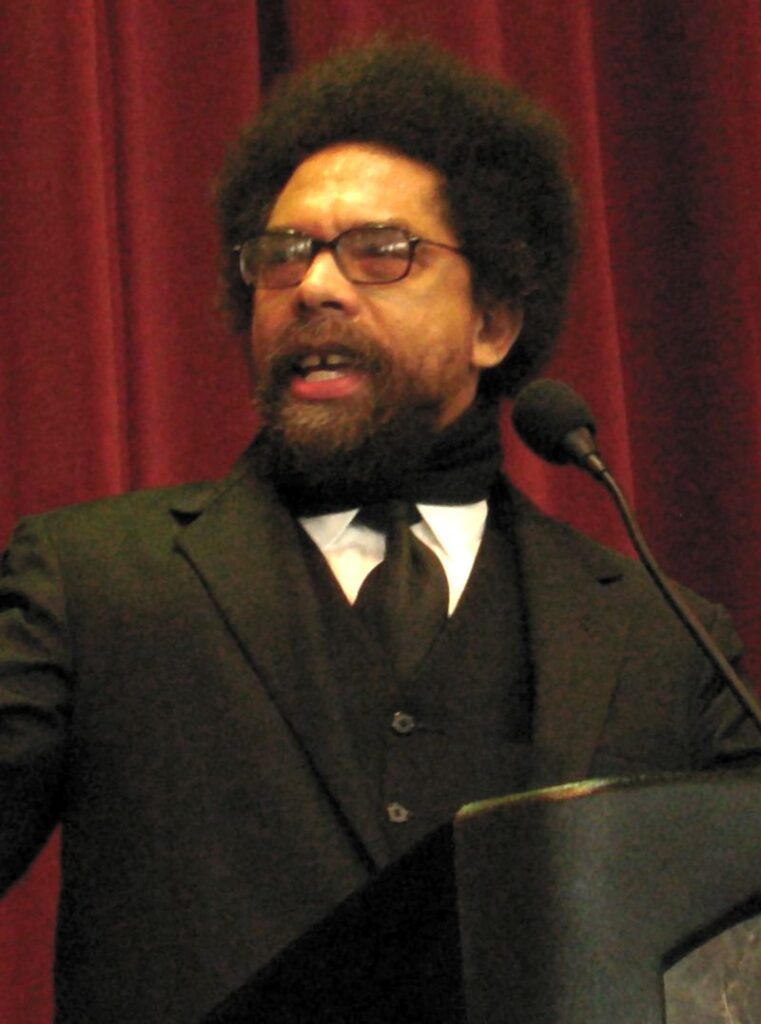
6. **The Escalation: Shouting, Accusations of ‘Making Money’**: Following Cornel West’s admission regarding his use of the “neo-fascist” label, the civility of the debate rapidly deteriorated. The exchange between West and Andrew Wilson, in particular, grew intensely heated, with both men abandoning orderly discourse in favor of trying to shout over one another. This breakdown in communication signaled a profound level of frustration and an inability to find common ground on such contentious issues.
The verbal combat became so intense that West pleaded, “Let me make the case! Will you allow me to speak, brother? Come on, man. Come on,” over the din of cross-talk. This appeal highlighted his frustration with Wilson’s interruptions and his perception that the debate format was failing to allow for substantive argument, transforming it into a chaotic exchange where voices were drowned out.
In the midst of this escalating chaos, West lashed out at Piers Morgan directly, accusing him of prioritizing financial gain over genuine intellectual engagement. He stated, “Piers, why you have a brother on who’s not gonna allow nobody to speak, man? We’re just wasting time. If all you’re interested is in making your money, and you bring this brother on and nobody can say a word and we can’t even mourn brother Charlie passing.” This accusation shifted the focus from the substance of the debate to the integrity and motivations of the host.
This charge of exploiting the tragic event for ratings and profit was a profound personal attack on Morgan and the nature of the show itself. It suggested that West perceived the entire discussion as a spectacle rather than a serious inquiry into political violence. This accusation served as a clear precursor to his eventual decision to exit the set, signaling his complete disillusionment with the direction and conduct of the live broadcast.
The exchange continued to devolve, with West expressing deep dismay over the lack of respectful dialogue. His frustration mounted as Wilson, unyielding in his confrontational approach, continued to interrupt. West’s visible agitation and the escalating verbal intensity marked a critical juncture, foreshadowing his dramatic departure from a debate he increasingly viewed as unproductive and disingenuous.
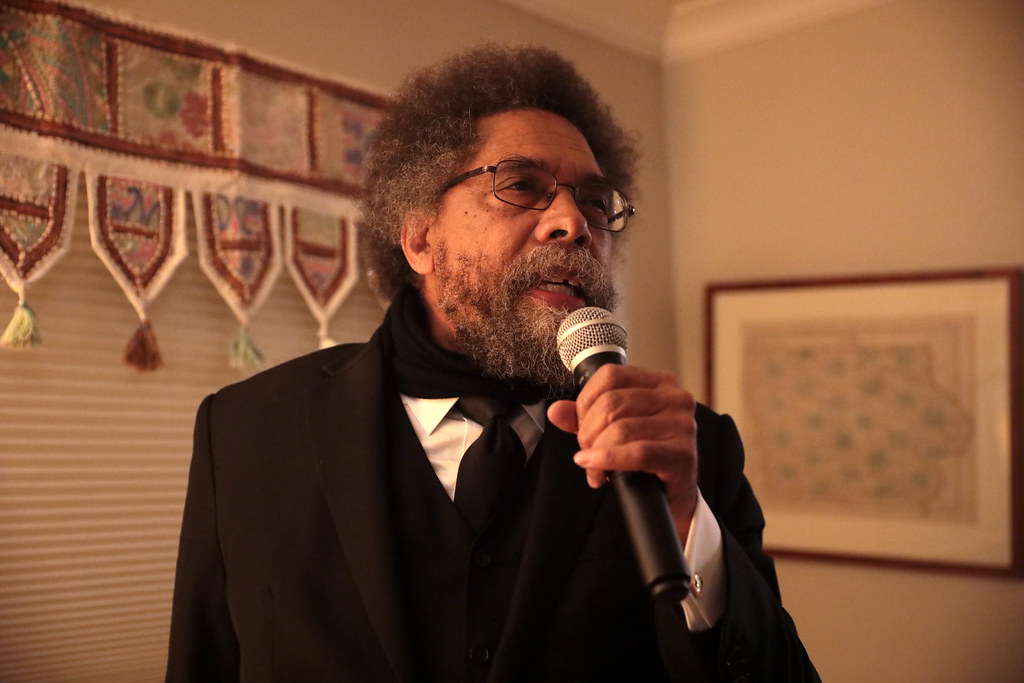
7. **Monetization and Mourning: West’s Denunciation of the Debate’s Integrity**: As the debate’s decorum continued its precipitous decline, Cornel West shifted his focus from the specific accusations of Andrew Wilson to a broader critique of the program’s integrity and the motivations of its host. His frustration, palpable amidst the incessant cross-talk, culminated in a direct and scathing indictment of Piers Morgan. West questioned the very purpose of the segment, implying that commercial interests overshadowed any genuine attempt at substantive dialogue regarding Charlie Kirk’s tragic death. This accusation marked a significant turning point, challenging the ethical framework of the broadcast itself.
West’s critique was explicit, stating, “Piers, why you have a brother on who’s not gonna allow nobody to speak, man? We’re just wasting time. If all you’re interested is in making your money, and you bring this brother on and nobody can say a word and we can’t even mourn brother Charlie passing.” This statement suggested that West perceived the entire discussion as a carefully orchestrated spectacle designed to generate ratings and profit, rather than a sincere platform for exploring the profound implications of political violence. The accusation of prioritizing financial gain over respectful discourse added a new layer of conflict, portraying Morgan as complicit in the perceived disingenuousness of the debate.
Furthermore, West emphasized the deeply personal impact of Charlie Kirk’s death, contrasting his own sense of mourning with what he characterized as the show’s exploitative atmosphere. He asserted, “Charlie was made in the image of a loving and mighty God! I believe that. I have said my prayers for sister Erika and the kids… This brother wants to trash my Christian sensibility, and look at him laughing now. It’s a joke, man. Piers, it’s not worth it.” This heartfelt expression of grief and spiritual conviction underscored West’s belief that the debate had veered far from honoring Kirk’s memory, instead becoming a platform for contentious and disrespectful exchanges, further highlighting his growing disillusionment with the proceedings.
West’s comments reflected a profound ethical concern, suggesting that the monetization of a national tragedy debased the very act of public dialogue. His perception that Wilson was actively “trashing” his “Christian sensibility” and deriving amusement from the heated exchange amplified his sense of moral outrage. The cumulative effect of these perceived slights and the relentless interruptions solidified West’s conviction that the debate had become, in his words, “a joke,” bereft of genuine intellectual engagement or human empathy.
Ultimately, West’s declarations, culminating in his pronouncement, “It’s a joke, man! It’s not worth it!” before he left, represented a complete rejection of the premise and execution of the “Piers Morgan Uncensored” segment. His withdrawal was not merely an act of frustration but a principled stand against what he viewed as a corrupt and unproductive format, underscoring the deep chasm between his expectations for meaningful discourse and the reality of the live broadcast.
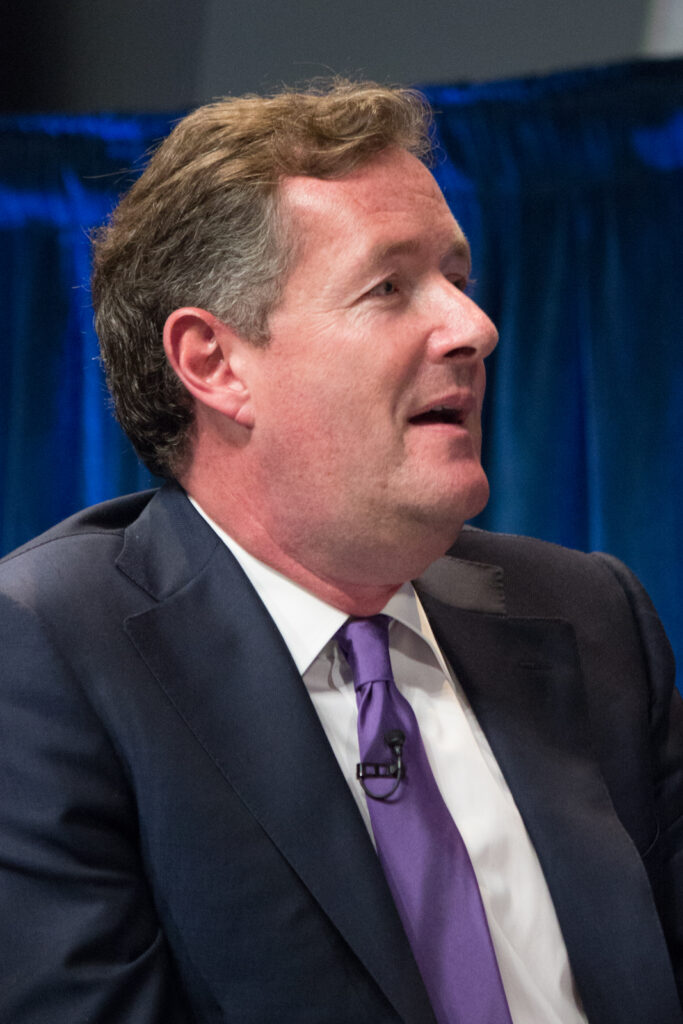
8. **Morgan’s Post-Walkout Critique: The ‘Farcical’ Nature of Abandoning Free Speech**: In the immediate aftermath of Cornel West’s abrupt departure, Piers Morgan delivered a trenchant critique, characterizing the walkout as “farcical” and inherently contradictory to the very principles the debate aimed to address. Morgan articulated his view that abandoning a discussion explicitly centered on free speech and the imperative to listen to diverse opinions represented a profound intellectual inconsistency. His statement, “Kind of farcical to quit a debate when we’re literally debating about the importance of free speech and being able to listen to each other’s opinions,” underscored his belief that West’s actions undermined the foundational values of democratic discourse.
Morgan further elaborated on the broader societal implications of such rhetoric, reiterating his conviction that the “progressive left’s repeated rhetoric over the past nine years” had significantly influenced public perception. He posited that this sustained demonization, particularly the labeling of political opponents as “fascists,” had convinced some individuals that extreme actions, including violence, might be justified to “stop alleged fascists.” This argument directly linked the inflammatory language, which he had initially challenged West on, to the tragic assassination of Charlie Kirk, thereby reinforcing his initial premise about the left’s culpability.
The host’s reflections after West’s exit served to frame the walkout not merely as a personal disagreement but as a symptomatic failure of a certain segment of the political spectrum to engage constructively when confronted. Morgan’s assertion that the situation “seems to me completely insane” conveyed his deep concern over the inability of prominent figures to maintain dialogue, even when the subject matter — political violence and its causes — demanded it most urgently. His remarks implicitly positioned West’s departure as a testament to the challenges of fostering genuine understanding across ideological divides.
This post-walkout commentary by Morgan was designed to reassert the show’s commitment to free speech, while simultaneously highlighting what he perceived as a significant shortcoming in West’s approach to open debate. It drew a clear line, suggesting that while vigorous disagreement is essential, the refusal to engage when challenged, particularly on a platform dedicated to the very concept of dialogue, was a counterproductive and ultimately indefensible act. The host’s perspective thus shaped the immediate public interpretation of West’s departure, framing it within the context of intellectual responsibility and the enduring importance of civil exchange.
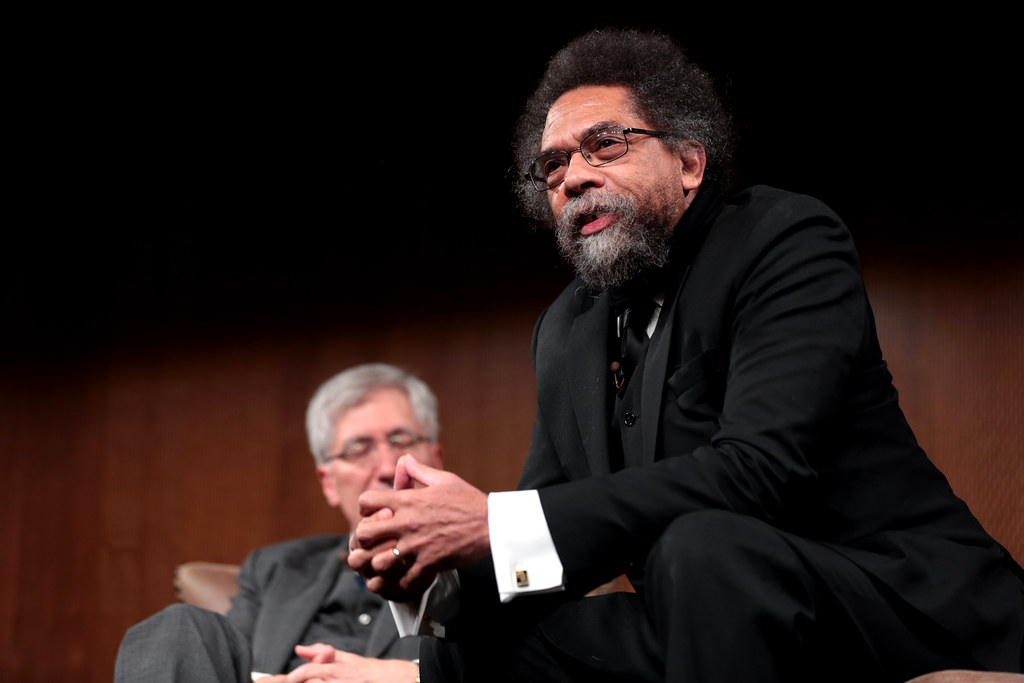
9. **Broader Societal Reverberations: Free Speech, Dialogue, and Political Extremism**: Cornel West’s walkout from “Piers Morgan Uncensored” transcended the confines of a single broadcast, sparking broader discussions about the fragile state of free speech, the challenges of meaningful dialogue, and the pervasive issue of political extremism in contemporary America. The incident, quickly going viral, elicited a spectrum of reactions, underscoring the deep divisions within public opinion. Some viewers critically assessed Andrew Wilson’s confrontational style, suggesting it stifled productive conversation, while others championed his approach as a necessary form of direct challenge, highlighting the divergent expectations for civil discourse in an increasingly polarized landscape.
In the aftermath, West himself issued a statement, characterizing the show as a “circus” that ultimately “failed to honour Mr Kirk’s memory.” This post-event reflection reiterated his disillusionment with the program’s format and content, reinforcing his perception that the discussion lacked the gravity and respect warranted by the tragic context. His statement contributed to the ongoing debate about media responsibility, particularly in how sensitive and contentious topics, such as political violence, are presented and monetized.
The segment’s dramatic conclusion, particularly Morgan’s reiteration that it was “farcical to quit a debate where we’re literally debating about the importance of free speech and being able to listen to each other’s opinions,” resonated with many who champion robust, even if uncomfortable, dialogue. This perspective emphasizes that the ability to tolerate and engage with opposing viewpoints, especially when discussing sensitive issues, is fundamental to a healthy democracy. The walkout, therefore, became a case study in the tension between asserting one’s perspective and sustaining the necessary conditions for mutual understanding.
Moreover, the entire episode served as a stark reminder of the underlying currents of political extremism that continue to vex the nation. The assassination of Charlie Kirk, the catalyst for the debate, amplified concerns that inflammatory rhetoric, regardless of its origin, can contribute to a climate where violence is normalized or even perceived as justifiable. The debate itself, with its rapid descent into shouting and accusations, mirrored the broader societal challenge of bridging ideological divides and fostering an environment where disagreements can be aired without dissolving into hostility or physical confrontation. The episode, therefore, became a microcosm of the intense struggles for civility and reasoned discourse in an increasingly fragmented public sphere.
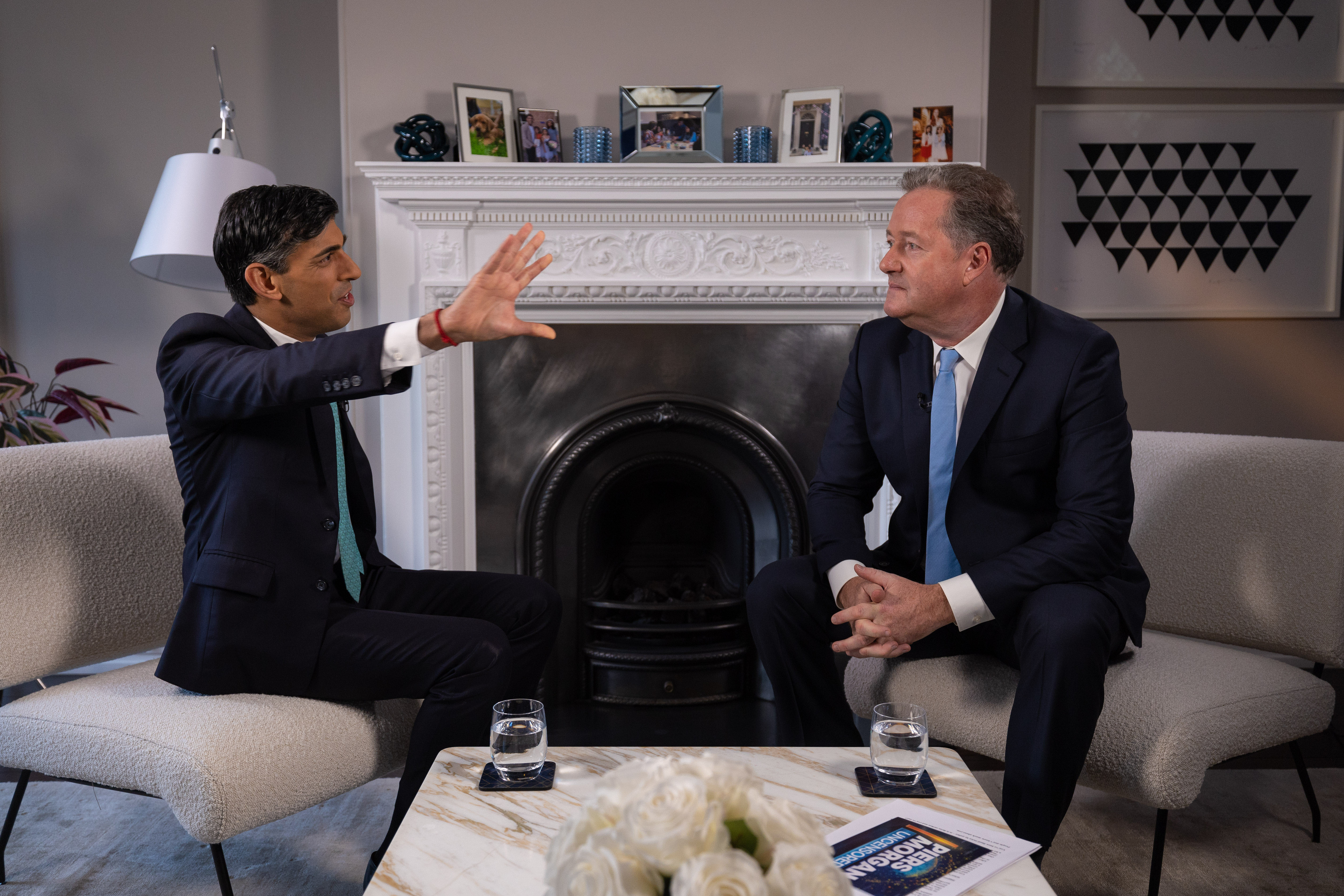
10. **The Kirk Assassination and the Call for Rhetorical Accountability**: The profound implications of the “Piers Morgan Uncensored” debate extended beyond the immediate broadcast, tying back to the tragic event that instigated the discussion: the assassination of Charlie Kirk. The ongoing investigation provided sobering context for the debate on political rhetoric. Authorities confirmed the arrest of 22-year-old Tyler Robinson, accused of Kirk’s murder. This development underscored the tangible and devastating consequences of ideological extremism, bringing the abstract arguments about rhetoric into sharp and painful focus. The connection between extreme political views and violent acts remained at the forefront of national discourse.
Further details from the investigation provided insight into the alleged perpetrator’s motives. Republican Utah Gov. Spencer Cox disclosed at a Friday press conference that law enforcement officials discovered “anti-fascist messages on the ammunition” recovered from the rifle near the assassination site. These messages, such as “Hey fascist! Catch!”, provided a chilling, explicit link between the kind of political labeling debated on Morgan’s show and the alleged mindset of Kirk’s killer. This evidence profoundly deepened the urgency and gravity of the debate about the impact of inflammatory language, suggesting a direct correlation between extreme rhetoric and violent radicalization.
In the wake of Kirk’s killing and the contentious debate, calls for greater rhetorical accountability emerged from various quarters. Former Democratic strategist Dan Turrentine, speaking on “The Morning Meeting,” explicitly urged his party to acknowledge and correct what he viewed as an error in labeling Donald Trump a “fascist.” Turrentine stated, “[T]he party should not call Trump Hitler, should not say he’s a fascist. One, it’s bad politics. Two, it’s just not true. Right? It is simply not the case.” His appeal highlighted a growing recognition among some analysts that even politically motivated rhetoric carries significant weight and can have unintended, dangerous consequences.
Turrentine’s argument emphasized that political parties have a responsibility to self-police their language, particularly when it involves highly charged historical comparisons. He asserted, “And I think that whenever a bad thing happens, parties need to call out in real time, ‘This is not acceptable.’” This perspective advocated for immediate and unequivocal condemnation of rhetoric that could potentially incite violence, regardless of the political affiliation of the speaker. The assassination, therefore, prompted a broader re-evaluation of the boundaries and responsibilities inherent in public political discourse, particularly in a climate marked by heightened tensions and real-world violence.
The repercussions of Kirk’s death also extended to other public figures, illustrating the immediate scrutiny applied to responses concerning the tragedy. Fort Worth Councilwoman Elizabeth Beck, for instance, faced significant backlash for a social media post, “Unfortunate,” over a screenshot of Kirk shortly after his death. She subsequently deleted the post due to widespread outrage, demonstrating the public’s sensitivity to perceived insensitivity in the face of political violence. These reactions collectively underscored the heightened awareness and demand for ethical and responsible conduct in public life, particularly when addressing events with such profound societal implications.
The dramatic events on “Piers Morgan Uncensored,” set against the tragic backdrop of Charlie Kirk’s assassination, laid bare the deeply fractured nature of contemporary American public discourse. The segment, intended to examine the dangerous intersection of inflammatory political rhetoric and real-world violence, ultimately became a stark illustration of the very challenges it sought to address. From accusations of neo-fascism to charges of profiting from tragedy, and culminating in a dramatic walkout, the debate underscored the profound ideological chasms that divide the nation. It highlighted not only the fervent convictions held by public figures but also the increasing difficulty of engaging in respectful, constructive dialogue across partisan lines. As society grapples with the pervasive influence of extreme language, this contentious exchange serves as a crucial case study, revealing the urgent need for a renewed commitment to civility, empathy, and the pursuit of understanding in the public square, even amidst the most profound disagreements.

